
Kód: 04727283
Beyond Sweatshops
Autor Theodore H. Moran
Images of sweatshop labor in developing countries have rallied opponents of globalization against foreign direct investment (FDI). The controversy is most acute over the treatment of low-skilled workers producing garments, footwea ... celý popis
- Jazyk:
 Angličtina
Angličtina - Väzba: Brožovaná
- Počet strán: 208
Nakladateľ: Brookings Institution, 2002
- Viac informácií o knihe

Mohlo by sa vám tiež páčiť
-

Cosmetic and Toiletry Formulations, Vol. 7
304.22 € -

Marine Prawns and Shrimps
107.42 € -2 % -

Advanced Membrane Technology and Applications
222.25 € -

Geometric Algebra
12.87 € -28 % -

Bonding Volume 1
20.68 € -20 % -

Isometric Graph Paper: Draw Your Own 3D, Sculpture or Landscaping Geometric Designs! 1/4 inch Equilateral Triangle Isometric Graph Recticle T
9.32 € -2 % -

Knitting & Lace & Tatting: 1-2-3 Quick Beginners Guide to Knitting! & 1-2-3 Quick Beginners Guide to Lace and Tatting!
20.48 € -2 % -

Renewing Your Relationship
12.57 € -

The Road to Success
25.96 € -

Anna Was Here
14.50 € -20 % -

PLEYEL 3 DUOS OP 61
9.53 € -16 % -

Programmer's Guide to Internet Mail
120.30 € -

Segantini
23.52 € -2 % -

Restauration De La Science Politique: Exposition, Histoire Et Critique Des Faux Syst?mes De L'école. Principes Généraux De L'ordre Naturel Ou Divin, O
33.87 €
Darčekový poukaz: Radosť zaručená
- Darujte poukaz v ľubovoľnej hodnote, a my sa postaráme o zvyšok.
- Poukaz sa vzťahuje na všetky produkty v našej ponuke.
- Elektronický poukaz si vytlačíte z e-mailu a môžete ho ihneď darovať.
- Platnosť poukazu je 12 mesiacov od dátumu vystavenia.
Viac informácií o knihe Beyond Sweatshops
Nákupom získate 80 bodov
 Anotácia knihy
Anotácia knihy
Images of sweatshop labor in developing countries have rallied opponents of globalization against foreign direct investment (FDI). The controversy is most acute over the treatment of low-skilled workers producing garments, footwear, toys, and sports equipment in foreign-owned plants or the plants of subcontractors. Activists cite low wages, poor working conditions, and a variety of economic, physical, and sexual abuses among the negative consequences of the globalization of industry. In Beyond Sweatshops, Theodore Moran examines the impact of FDI in manufacturing on growth and welfare in developing countries, and explores how host governments can take advantage of the contributions of foreign investment while avoiding the hazards to lower-skilled workers. He traces case studies of countries that have managed to produce steady improvement in worker treatment at plants exporting garments, footwear, and other labor-intensive products. The first part of the book examines multilateral proposals designed to place a floor under the treatment of workers around the world, contrasting a WTO-based system to enforce labor standards with "voluntary" arrangements, including corporate codes of conduct, certification organizations, and "sweatshop free" labeling. It explores the pros and cons of adding a "living wage" requirement to the ILO's core labor standards. The second part of the book presents data that significantly broadens our understanding of FDI. By analyzing the evidence from a variety of developing countries --in Asia, Latin America, and Africa --Moran demonstrates that most FDI goes to industrial sectors that employ trained workers who are not easily exploited. The flow of FDI to plants that produce electronics, auto parts, industrial equipment, chemicals, pharmaceuticals, and medical equipment, paying production workers two to five times more than what is found in lower-skilled operations, is twenty-five times the flow to garment, textile, and footwear plants. Appropriately designed host country policies can transform the development trajectory of the entire economy. Moran advocates various "build-up" --rather than "trickle down" --strategies to enable developing countries to capture the benefits of FDI. He concludes by examining the impact of outward investment on workers and communities in the home economy, investigating evidence about what Ross Perot called the "great sucking sound," and asking whether the expansion of foreign investment in the developing world comes at the expense of good jobs and dynamic industries in the developed countries.
 Parametre knihy
Parametre knihy
Zaradenie knihy Books in English Economics, finance, business & management Economics Labour economics
32.05 €
- Celý názov: Beyond Sweatshops
- Podnázov: Foreign Direct Investment and Globalization in Developing Countries
- Autor: Theodore H. Moran
- Jazyk:
 Angličtina
Angličtina - Väzba: Brožovaná
- Počet strán: 208
- EAN: 9780815706151
- ISBN: 0815706154
- ID: 04727283
- Nakladateľ: Brookings Institution
- Hmotnosť: 295 g
- Rozmery: 229 × 152 × 12 mm
- Dátum vydania: 12. June 2002
Obľúbené z iného súdka
-
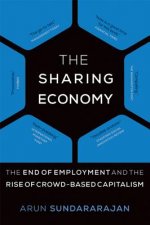
Sharing Economy
16.83 € -20 % -
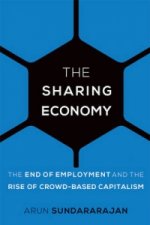
Sharing Economy
25.76 € -17 % -

Reflective Practitioner
35.70 € -
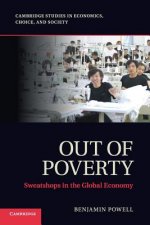
Out of Poverty
40.87 € -

Hired
10.34 € -28 % -
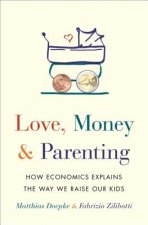
Love, Money, and Parenting
34.18 € -

Wealth of Humans
16.32 € -28 % -
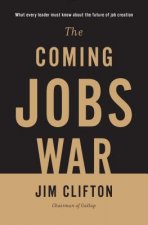
Coming Jobs War
20.68 € -20 % -

Shutdown in Youngstown
119.29 € -

Search Theory and Unemployment
121.82 € -

Workers of the World
89.26 € -

New Division of Labor
36.92 € -
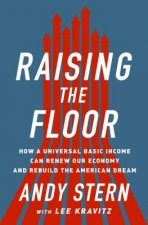
Raising the Floor
22.21 € -21 % -

Inequality in America
32.86 € -16 % -

Reflective Practitioner
47.36 € -
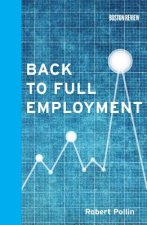
Back to Full Employment
9.63 € -17 % -

Industrial Relations in Japan
179.44 € -
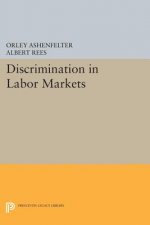
Discrimination in Labor Markets
40.97 € -
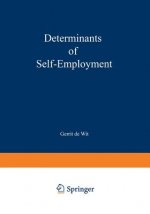
Determinants of Self-employment
61.77 € -
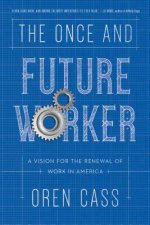
Once and Future Worker
21.90 € -18 % -

Debating Universal Basic Income
50.91 € -

Shop Class as Soulcraft
28.50 € -4 % -
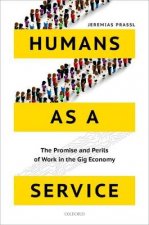
Humans as a Service
28.29 € -5 % -

Labor
21.39 € -
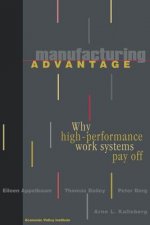
Manufacturing Advantage
47.77 € -

Unemployment
274.39 € -

Social Production of Art 2/E Pb
35.70 € -

e-Government and Employment Services
61.77 € -

Global Gag Rule and Women's Reproductive Health
64.41 € -
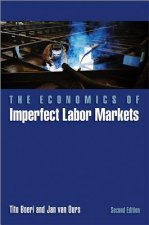
Economics of Imperfect Labor Markets
75.97 € -5 % -
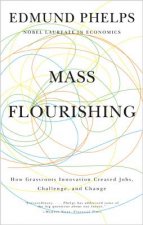
Mass Flourishing
28.80 € -
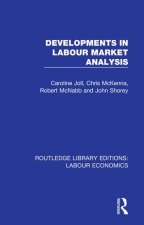
Developments in Labour Market Analysis
57.20 € -

Modelling Unemployment Insurance
132.78 € -

Free and Unfree Labour
135.82 € -

Social Change and the Experience of Unemployment
82.97 € -
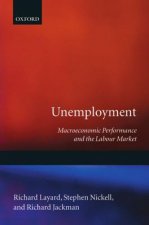
Unemployment
77.19 € -

Jobs, Earnings, and Employment Growth Policies in the United States
61.77 € -
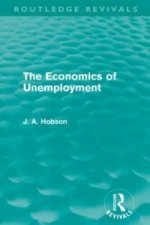
Economics of Unemployment (Routledge Revivals)
56.19 € -
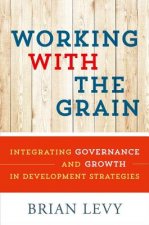
Working with the Grain
200.95 € -
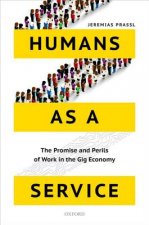
Humans as a Service
44.32 € -7 % -

Unequal Pay for Women and Men
11.96 € -16 % -

New Technology and the Labour Process
121.82 € -

Behind the Urals
23.52 € -

Wage-Labour and Capital & Value, Price and Profit
41.38 € -
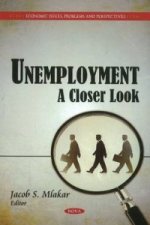
Unemployment
133.89 € -17 % -
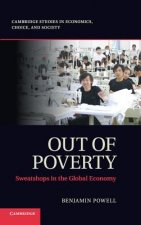
Out of Poverty
85.51 € -
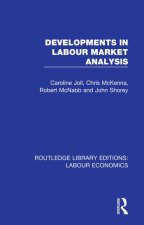
Developments in Labour Market Analysis
223.87 € -

The Working Class in the Labour Market
57 € -

Danwei
290.52 €
Collection points Bratislava a 2642 dalších
Copyright ©2008-24 najlacnejsie-knihy.sk All rights reservedPrivacyCookies



 15549 collection points
15549 collection points Delivery 2.99 €
Delivery 2.99 € 02/210 210 99 (8-15.30h)
02/210 210 99 (8-15.30h)